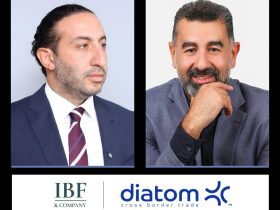Dubai – Masaader News
Sovereign Wealth Funds (SWFs) now allocate almost a quarter (23%) of their assets under management to alternative investments such as private equity, real estate, gold and infrastructure, shows a new report from PwC.
The report, titled The rising attractiveness of alternative asset classes for Sovereign Wealth Funds, finds that, despite SWFs facing adverse conditions since 2014 when asset growth began to stall as a result of falling oil prices, total assets under management still grew to US$7.4 trillion in 2016, albeit at a slower pace than prior years.
The pressure felt since 2014 is driving SWFs to broaden their investment strategies and PwC expects the growth rate of assets under management to increase in the coming years as SWFs invest in non-fossil sources and diversify their portfolios to include alternative investments to enhance returns. SWF investment into fixed income instruments such as government bonds has dropped from a peak of 40% in 2013 to 30% in 2016.
Laurent Depolla, PwC Middle East Sovereign Investment Funds leader said “Middle East SWFs, in general, have been following the global trend by allocating more capital towards alternatives. Over the five-year period their average allocation to the alternatives asset class has increased from 3.7% to 6.1% of total assets, while their average target allocation rose from 6.5% to 8.6%.” Adding “ This can be attributed to new sovereign wealth funds entering the asset class as well as continued appetite from those already active.”
Infrastructure is also a large focus of SWFs in the region. Preqin notes that European infrastructure deals are particularly attractive for Middle Eastern SWFs, with them “possibly looking to deploy capital at even lower preferred rates of return.”
Commenting on the key influencing factors on asset allocation for investors in the Middle East region, Tarek Shoukri, PwC Sovereign Investment Fund Director said “ Currently, Middle East SWFs seeking to generate superior returns under challenging economic conditions have started to adjust their investment strategies”. Adding “ Due to the drop in the oil price in recent years, there have been less inflows from their traditional revenue sources. In an attempt to maintain their return objectives,
The report notes that including certain alternative asset classes is not without risks as the majority of alternatives are highly illiquid. An exception is gold, which has one of the highest rates of daily volumes exchanged and can provide protection against short and medium term market corrections.
Will Jackson-Moore, PwC’s global head of sovereign investment funds and private equity, commented: “Sovereign Wealth Funds play an important role helping governments stabilise the economy and exchange rates. We expect alternatives to be prominent in SWF portfolios in the future as they can offer increased diversification, principal protection, a hedge against inflation, and an increase in portfolio performance.
“That being said, finding the right allocation strategy for these asset classes is crucial as including certain alternatives might introduce a new set of risks such as illiquidity, complexity, and cyclicality. SWFs should keep in mind the need for continuous monitoring of their portfolios and their investments and reallocate their capital to reflect economic developments.
“Overall though, the benefits seem to outweigh the costs, as the varied nature of alternatives provides SWFs with the ability to select an asset class specific to their investment needs.”











